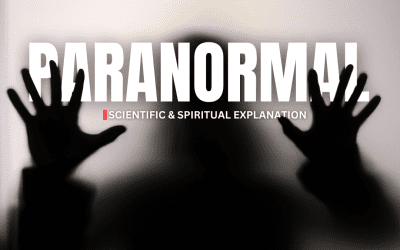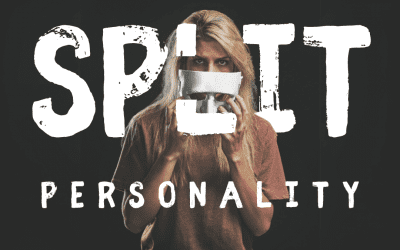Anxiety manifests itself differently for each person. Your perception of anxiety’s appearance cannot always match reality. Some people who struggle with anxiety inwardly and in secret may go through life without showing any signs of it.
Anxiety signs
People experience overall uneasiness or anxiety when they are nervous, whether there is a real threat or not. These emotions might range in intensity from moderate to strong. Additional physical symptoms may result from this uneasiness. These, however, will differ between individuals and situations.
Common bodily indications of anxiety include:
- nervousness
- elevated core body temperature
- fast breathing and perspiration
- A panic attack
There are instances when anxiety might turn into an anxiety attack. An attack may start mild and progressively worsen over many hours.
Anxiety episodes might result in:
- Feelings of danger, panic, or dread
- Severe nervousness or restlessness
- Rapid heart rate
- Trembling
- Weakness
- Difficulty focusing
Anxiety disorders
There are several varieties of anxiety disorders. They comprise:
- (GAD): generalised anxiety disorder
- Concern for others
- swallowing dread
- worry about performance.
- worrying about one’s health
- Relationship phobia
- Fear of driving
- Phobias
Anxiety attacks share some symptoms with panic attacks, but they are distinct occurrences.
What is worry?
A normal, even vital, aspect of existence is anxiety. It warns us of threats and assists us in becoming ready for a range of circumstances (American Psychiatric Association, 2021).
Anxiety is abnormal when it significantly interferes with everyday functioning and other parts of life, according to the Diagnostic and Statistical Manual of Mental Disorders (DSM-5, 2013).
Following are five things anxious individuals do on their own in private:
- Constantly overthink everything
According to the American Psychiatric Association (2021) and the DSM-15 (2013), anxiety disorders are characterised by excessive or disproportionate concern and dread to the point that they interfere with everyday activities. People with anxiety tend to overthink internally both when they are around other people and when they are alone, even if this may not be as visible to others.
Your loved one may have a propensity to concentrate on self-critical thoughts and mistakes from the past if they are experiencing anxiety (Cuncic, 2020). They could repeatedly replay these prior incidents in their minds while reflecting on what they might have done better. To predict what may go wrong and what would make them anxious, they might also visualise potential future scenarios.
2. Restrict oneself from what is familiar to them
Everybody has occasional worries, but people who suffer from an anxiety disorder regularly modify their lifestyles to address their fears. Instead of choosing activities for enjoyment or out of real interest, individuals may limit themselves to occupations that help them avoid the things that make them feel uncomfortable or that quiet their racing thoughts (Cuncic, 2020).
For instance, since people are relieved of the anxiety of wondering what will happen next, they could continually watch the same episodes. They might have to use a lot of mental energy to explore new series (Michaela, 2021).
A person with some anxiety disorders might not even be able to leave the house because they are afraid of being in environments from which they might not be able to easily escape. Some people may find it difficult to leave the house without a particular person they are overly afraid of losing.
3. Avoid social interactions
Some anxiety sufferers may have a small social circle. They may seem to decline invitations out of disinterest in other people, but what they’re doing is staying at home to allay their anxieties and phobias (Cuncic, 2020).
Different people may worry about different things. Due to a disabling dread of being rejected, humiliated, or looked down upon in social situations, some people may choose to avoid spending time with others (American Psychiatric Association, 2021).
To deal with their anxieties rather than refuel their social batteries, people with anxiety may retreat from others. To deal with these emotions, they can avoid using their phones and ignore or turn off their text and email notifications. When individuals later view their backlog of communications, they could experience these feelings all over again (Michaela, 2021).
4. Put off or struggle to complete duties
Some individuals with anxiety may come across as polished achievers. While it is true that they are capable of accomplishment, they may struggle to complete their task while working alone. They may put off or delay their work as a result of anxious thoughts (Cuncic, 2020). Working memory is also impacted by anxiety, which makes it challenging to maintain concentration for long enough to finish activities successfully (Psychology Today, n.d.).
Then, to make up for it all, there could be a long stretch of difficult crunch-time work to do (Cuncic, 2020).
5. toss and turn during the night.
It takes time for worry to manifest as a twitchy, tense energy that other people may quickly pick up on. In actuality, a person with anxiety may be tossing and turning at night, unable to sleep due to their worried thoughts (Cuncic, 2020; Psychology Today, n.d.). This might make them appear calm and relaxed on the outside. If they can sleep at all, it may be restless and unsatisfactory (DSM-5, 2013), or it may be accompanied by dreams concerning their anxieties. In the case of Separation Anxiety Disorder, for instance, a person may experience nightmares in which they are cut off from the person they are devoted to.
long-term methods for managing anxiety
It’s vital to develop long-term anxiety coping mechanisms if you want to lead a healthy lifestyle. Start by recognising and learning to control your triggers, which may include stress from work, relationships, and other aspects of your life; drug withdrawal or the negative effects of certain medications; a recurrence of a traumatic event; chronic pain; coffee; or smoking. CBT, or cognitive behavioural therapy, can aid in the creation of coping mechanisms for anxiety disorders.
1. Ask your doctor about medications
Talk to your doctor about your worries if your anxiety is so bad that a mental health practitioner thinks medication would help you. Selective serotonin reuptake inhibitors (SSRIs), serotonin-norepinephrine reuptake inhibitors (SNRIs), benzodiazepines, and tricyclic antidepressants are examples of common anxiety drugs.
2 .Do a daily or routine meditation
Meditation regularly will teach your brain to control worried thoughts. Concentration can be improved through yoga or walking meditation.
3. Keep a journal
Maintaining a notebook to track your thoughts and feelings might be advantageous in the long run. Regularly documenting your emotions can help you feel less anxious, depressed, and upset.
4. Socialise
To reduce loneliness, promote laughter and togetherness, and relieve stress, socialise frequently with friends and family. Long-term stress resilience can be increased through social connections.
5. Staying active
Keep moving by working out frequently, obtaining appropriate rest, and maintaining relationships with people who care about you. Particularly physical activity can help with anxiety management.
6. Diet and supplements
Supplements and diet can be helpful in the overall treatment of anxiety. According to research, some foods and supplements can be beneficial when used in conjunction with other anxiety treatments. Before utilising herbal medicines, speak with your doctor because they may have negative
Summary
One treatment may be effective for some people but not for others since each person’s response to anxiety therapies varies greatly.
An individual’s anxiety treatment approach may include coping mechanisms, dietary adjustments, counselling, or medication.
Anxiety comes in many different forms, and each one may require a particular course of therapy.
To improve their chances of conquering anxiety, a person must have the proper diagnosis before seeking therapy.








0 Comments